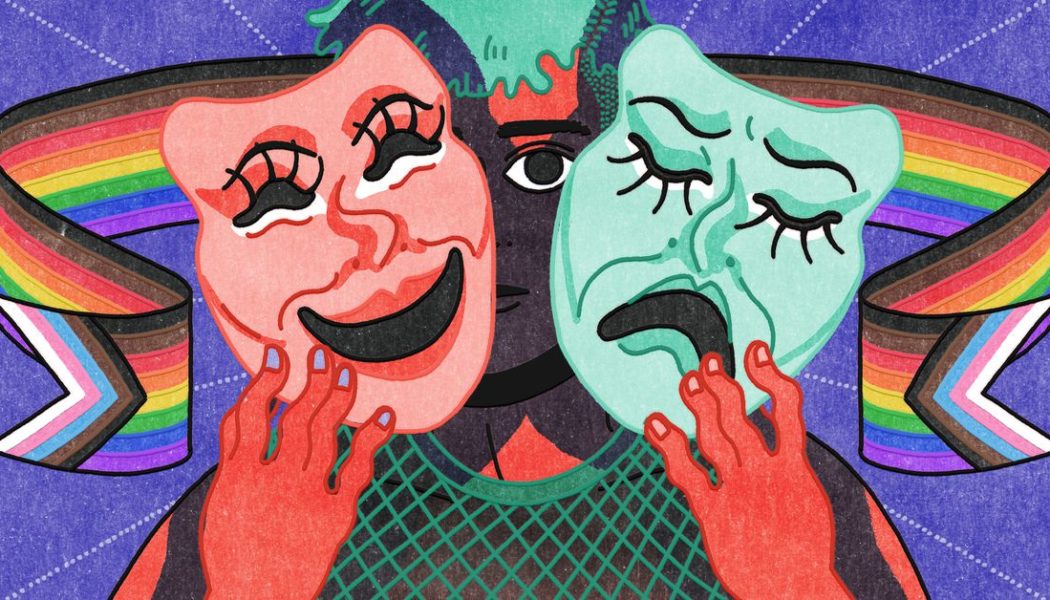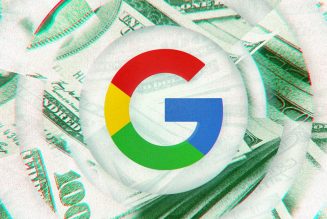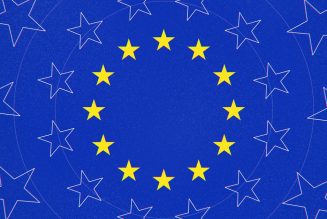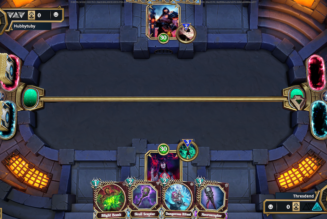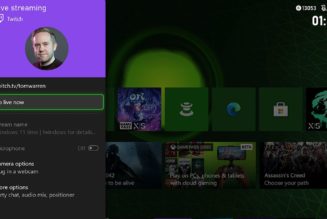
A few times per month, Anania Williams posts sponsored content to his TikTok account, sandwiched in between memes, social commentary, and amateur drag videos. The sponsorships offer financial security, alleviating “a lot of the pressure of coming from a poorer family” by helping him pay for rent and school in Boston, Williams said. This past July, he was able to quit his summer job, turning TikTok into his primary money-making gig.
But more and more, Williams — like other creators from the LGBTQ community — has found himself being asked by advertisers to feature his identity in these sponsored posts, something he isn’t comfortable doing. That’s put these creators in a tough spot: they can either push back and risk a sponsorship, or get paid for something they’d often rather not commercialize.
“I was struggling for a long time, but I’m really grateful for what I do have now where I can at least sustain myself,” Williams said.
Brand partnerships have become commonplace on TikTok, even for influencers with much smaller reaches than, say, the D’Amelio sisters. But smaller creators don’t always have the option to be choosy about what sponsorships they do and don’t take, making it difficult for creators when advertisers push for an idea they don’t like.
This problem became particularly acute for LGBTQ creators in June, when many brands wanted to contract with influencers for Pride Month and TikTok users began expressing skepticism of “corporate pride” en masse. Five TikTok influencers who spoke with me, all members of the LGBTQ community, said they were profoundly ambivalent about the way that sponsored content can end up turning their own selfhood into a product.
Smaller LGBTQ influencers are sometimes choosing to be picky about the ways in which they choose to do sponsored content — even at risk of their own livelihood. Meiya Sparks Lin, who runs a 311,000-follower channel where they post a mix of makeup tutorials, jokes, and political musings, turned down one deal for pride content, they said, because “there’s been a lot of discussion about commodification of pride, and I don’t think this would go over very well with either me or my audience.” Automotive influencer Chaya Milchtein, who writes and makes videos about (among other things) her identities as a queer fat woman in the automotive industry, says that she turned down several brand deals because “they looked at me like I was sort of a zebra.”
Choosing the wrong sponsorship can also blow back on creators. TikTok comedian and podcaster Andrew Sciallo promoted a dating app that matches people based on astrological compatibility, for example, which his audience saw as disingenuous. “It felt a bit hypocritical,” he laughed, because all of his content is focused on encouraging gay men to stop using apps such as Grindr and instead make face-to-face connections with others.
On the flip side, there can be decent money in sponsorships on LGBTQ topics — if you get the right deal. For LGBTQ and mental health educator Zoe Stoller, this past June was the most profitable month of their career thus far. She created content promoting HBO Max’s line of shows with LGBTQ characters, and works as a “TikTok educator” with the app itself.
“I think it’s wonderful that brands have made it a common thing to dedicate their pages to celebrating Pride Month, or at least making a post, or changing their logos,” Stoller said. “The issue comes when it’s very disingenuous, and it’s often very clear when that is. You know, when a company just changes their logo to rainbow, but doesn’t have any LGBTQ creators sharing things on their page.”
The other issue, Stoller says, is when companies don’t offer to pay LGBTQ creators for their work. “And a lot of companies unfortunately do that.”
Lin says that there’s some hope: as someone with access to an audience that brands suddenly very much desire, they can make some of their own demands on how they’ll be represented in a way that, say, actors in previous forms of ad campaigns would not have been able to do. In Lin’s case, they were able to produce other types of content entirely rather than directly engaging with pride-branded videos.
Contracts with brands often prohibit influencers from being part of unions. So, any power creators have to organize — withholding sponsorship contracts from brands that don’t support LGBTQ rights, for example — comes by word of mouth, in Discord groups and Clubhouse chats.
“A lot of influencers, especially on TikTok because it’s such a new genre of work, will undersell themselves,” Lin said. Sciallo said creators have to be wary of companies that are “not really there to share our stories, they’re there to exploit us.”
For Williams and Lin, though, there’s no easy answer on navigating sponsorships as they pay for college by putting themselves out there online.
“I don’t know if there’s something I can do to … change the tide of gay equals money,” Williams said. “But if there’s something I can do, I’m going to do my best to do that.” But for now, on TikTok, LGBTQ does equal a powerful consumer base, and brands are aware of that fact.
“I don’t think queer liberation or the liberation of any marginalized peoples can ever really come through, you know, consumer power,” Lin said. “So I think as long as you’re not marketing liberation as a brand, you can do what you want.”
